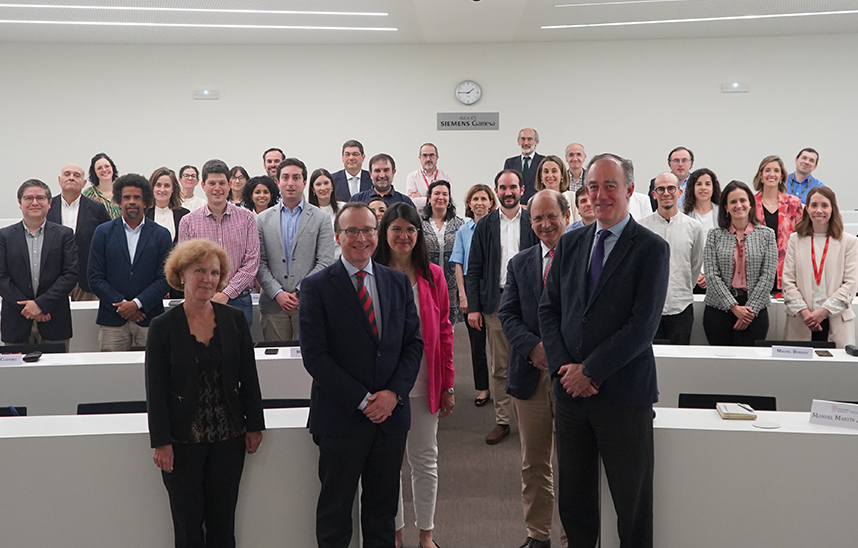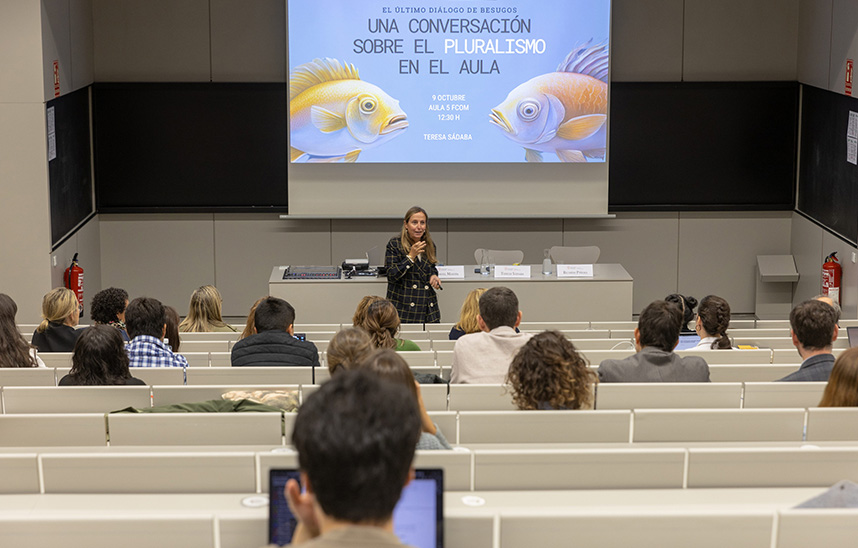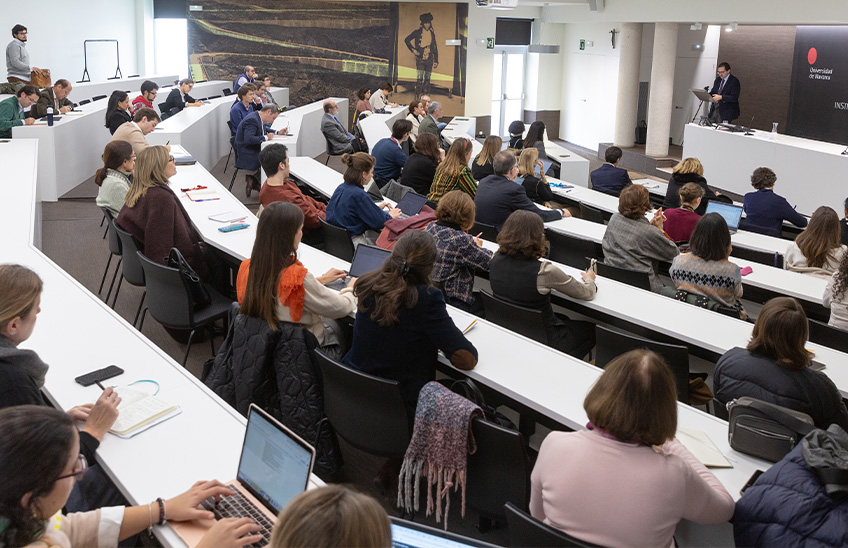Essayist Gregorio Luri calls for unity as a fundamental goal of the public discussion in Spain.
Nine experts debate at the University on the culture of cancellation and freedom of expression in the Spanish public sphere
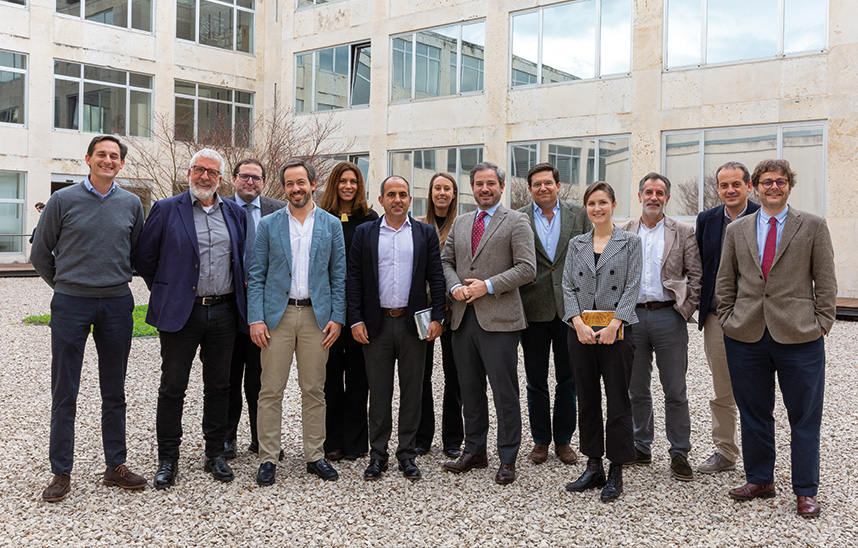
PhotoManuelCastells/
24 | 03 | 2022
"The fundamental goal of Spanish politics is unity", said essayist Gregorio Luri at the University of Navarra. The philosopher proposed a balance between diversity and unity, as the starting point for his exhibition during a colloquium organised by the high school Core Curriculum of the academic centre. The meeting brought together nine experts to reflect on "The challenges of the public discussion in Spain: confrontation or meeting?"
For his part, essayist and columnist Daniel Capó recalled that the public discussion is not synonymous with cultural war, as it enriches the opponent's reflection. financial aid "Consensus is born of dissent, so confronting each other with other ideas helps you to improve yours". However, Spain is not characterised by heterogeneity, according to Armando Zerolo, professor of Philosophy del Derecho at the CEU San Pablo University, who stated that our society is much more homogeneous than that of our neighbours in France, Italy, England and Germany. He also encouraged the audience to distinguish between imported debates and important ones, among which he highlighted the loneliness and vulnerability of human beings.
For his part, Pablo de Lora, Full Professor of Philosophy of Law at the Autonomous University of Madrid, lamented the degradation of the forums of public reason and the dogmatization of politics, and recalled that "the issues that concern us most are those to which we can only give an answer based on principles, for which there is no room for any compromise solution".
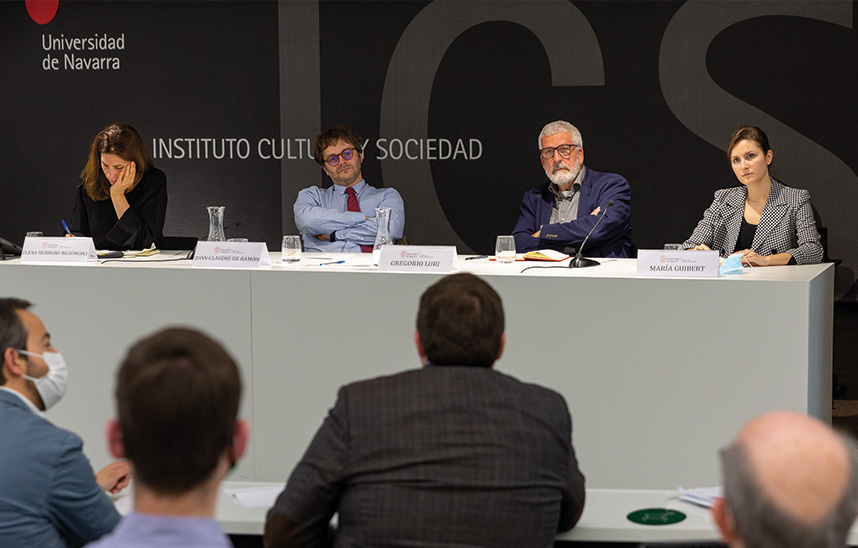
Proposing ideas without complexes or self-censorship
From the field of the media at speech, the director of Ethosfera, Elena Herrero-Beamont, recalled that today truth is not so much a moral obligation as a political necessity, a requirement of democracy, and called for the recovery of a "common space of facts", guarded by "truthful journalism" in the face of disinformation and post-truth. In view of this commitment to truth, the writer Juan Claudio de Ramón stressed the difference between censorship and taboo, the former being imposed and the latter decided by consensus. He also called for tolerance: "We all think we are tolerant until someone comes along who really thinks differently".
The poet and columnist, and editor-in-chief of Aceprensa, Juan Meseguer, encouraged the promotion of a reflective attitude in the public discussion that leads to looking at and going deeper into the issues of discussion. As steps to follow, he highlighted the need to reflect on "what you are in favour of, what worries you, why it worries you and what you propose" as steps to exercise intellectual life and to focus on the public discussion .
However, the editor of group Planeta and political analyst Aurora Nacarino-Brabo warned of the danger of those competing for political space. "It is not true that academics or universities are not belonging to the public discussion , but only part of them are. In Spain, 'either you do politics or they do it to you'. If you want your values to be taken into account, you have to establish them in the public space", warned Nacarino. Finally, the poet, press columnist and literary critic Enrique García-Máiquez reminded us that reason is also lost when it is not given to those who have it; and he encouraged us to propose our own ideas without complexes, without self-censorship, without victimhood: the "fight" of ideas is the closest thing to an embrace.

